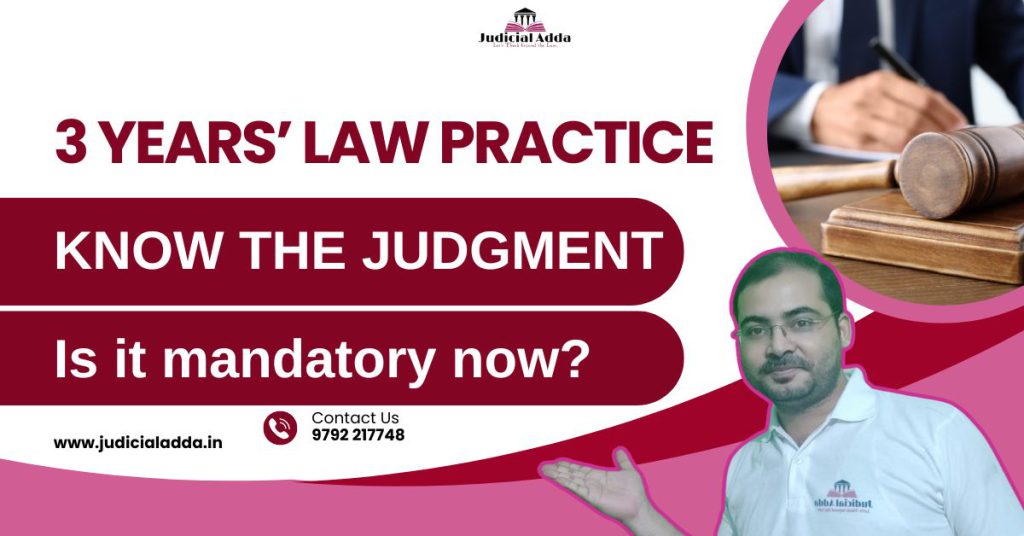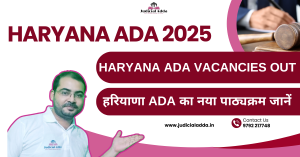
Are you looking for three years law practice details? Here is the relevant news.
Recently, the Supreme Court decided not to change its previous decision requiring law graduates to practice law for at least three years before taking the entry-level judicial services exam. By stating that any change could open a “Pandora’s box,” the court demonstrated its strong support for preserving consistent eligibility requirements across the nation.
The Indian Supreme Court has reiterated that judicial officer experience is not eligible to be applied toward the three years law practice needed to sit for the Civil Judge (Junior Division) exam.
The Court’s 20 May 2025 decision, which restored the 3-year practice rule for prospective judges, is supported by this explanation, which was provided on August 14, 2025. The goal of the ruling is to guarantee that before taking on judicial duties, candidates gain a significant amount of practical courtroom argument experience.
History of the Ruiling
Originally included in the eligibility requirements for the Civil Judge examinations, the three-year practice requirement was eliminated in 2002. The rule that new law graduates cannot enter the judiciary directly without first practicing law as an advocate was reinstated by the Supreme Court on May 20, 2025.
| HPSC ADA Vacancy 2025 | Haryana ADA Syllabus |
Important Takeaways from August 14, 2025, Explanation
Experience in judicial service and experience as a practicing lawyer are two very different jobs with essentially different tasks and skill sets.
The rule guarantees practical experience with legal practice, including cross-examination, drafting, argumentation, and client handling.
The Court placed emphasis on upholding a distinct boundary between advocacy (party representation) and judicial duty (neutral adjudication).
Judicial officers’ pleas to have their service experience counted as advocacy practice were denied by the bench. It cautioned that doing so may “open a Pandora’s box” and lead to demands that people in other professional professions be treated equally.
The Court claims that the fundamental idea behind the rule is that before rendering a decision, judges must first understand the law from the advocate’s point of view.
Effects of the Decision
The reintroduced regulation will prevent judicial officers who have not advocated for three years from taking the Civil Judge exam.
guarantees that gaining real-world courtroom experience is still required in order to join the courts.
maintains the caliber and readiness of newly appointed judges throughout India.
Relevant Decisions & Citations
On May 20, 2025, the All India Judges Association v. Union of India verdict reinstated the three-year practice restriction.
Petitioners seeking equivalence for judicial service experience were denied in August 2025.




